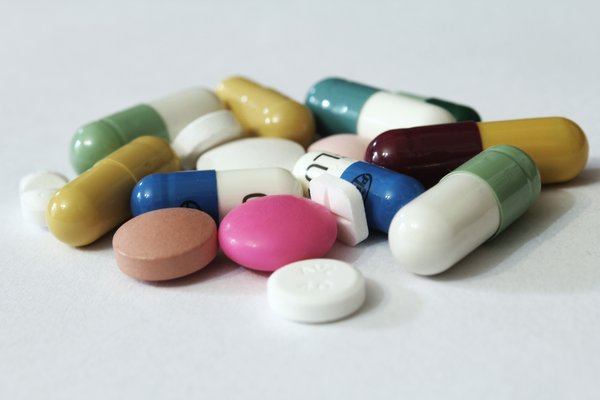FDA Proposes OverHaul of Dietary Supplement Industry
 The U.S FDA says it is finally overhauling its oversight of dietary supplements sold in the United States.
The U.S FDA says it is finally overhauling its oversight of dietary supplements sold in the United States.
Describing the move as “one of the most significant modernizations of dietary supplement regulation and oversight in more than 25 years,” the agency said that it is rolling out a multi-prong plan aimed at protecting the public from potentially “unsafe and unlawful products.” The FDA also announced a crackdown on more than a dozen supplement makers that had allegedly touted misleading claims about their products’ ability to treat serious diseases including Alzheimer’s and cancer.
Three out of every four American consumers take a dietary supplement on a regular basis, according to the FDA. Yet despite their widespread use, the multibillion-dollar supplement industry has long operated with little federal supervision. The FDA is not authorized to review dietary supplements for safety and efficacy before they are marketed. The agency only has the authority to stop the sale of a supplement if it can prove the product is dangerous. But with tens of thousands of products on the market today, many of which are sold online, the agency has conceded just how challenging this task can be.
FDA Commissioner Scott Gottlieb recently proposed several regulatory and communication initiatives that he would lead to one of the most significant modernizations of dietary supplement regulation in nearly 3 decades.
According to a press release, Gottlieb seeks to: create a tool that quickly notifies the public and appropriate manufacturer when a product with an illegal or possibly dangerous ingredient is discovered; revisit the 1994 Dietary Supplement Health and Education Act that provides the current FDA regulations regarding dietary supplements, ensure the FDA regulatory framework is fluid enough to adequately assess product safety while encouraging innovation; and form new relationships and cultivate existing ones to achieve these objectives.
Scott Gottlieb stated, “Our first priority for dietary supplements is ensuring safety,” the commissioner said in the release. “Our second priority is maintaining product integrity: we want to ensure that dietary supplements contain the ingredients that they’re labeled to contain, and nothing else, and that those products are consistently manufactured according to quality standards. ... Our third priority is informed decision-making.”
Gottlieb noted the FDA’s announcement earlier in the week that certain manufacturers received warning letters indicating the FDA’s awareness that their products that have not been approved and/or are misbranded as claiming to prevent, treat or cure Alzheimer’s disease is an example of what the initiative would do. He also said additional steps regarding the proposed overhaul and meeting logistics detailing how the public can provide input on it are forthcoming.
In what’s been interpreted as a nudge to lawmakers to boost the FDA’s authority over supplement makers, Gottlieb pointed out just how much the supplement industry has changed and grown since Congress passed the Dietary Supplement Health and Education Act in 1994. He said, “What was once a $4 billion industry comprised of about 4,000 unique products, is now an industry worth more than $40 billion, with more than 50,000 and possibly as many as 80,000 or even more different products available to consumers.”
“These products, which are often sold on websites and social media platforms, have not been reviewed by the FDA and are not proven safe and effective to treat the diseases and health conditions they claim to treat,” the agency wrote in a press release. “These products may be ineffective, unsafe and could prevent a person from seeking an appropriate diagnosis and treatment.” The companies, which included TEK Naturals, Pure Nootropics, Gold Crown Natural Products and Sovereign Laboratories, have 15 business days to respond to the FDA’s letters.
Supplement companies are legally allowed to make very broad claims about their products, which may encourage some to make assertions about diseases like dementia. As soon as your have an environment where you can say supplements are good for your brain and you don’t need clinical data to support that, then you’ve got an environment that is ripe for fraud.
Source:
https://www.huffingtonpost.com/entry/fda-dietary-supplements-crackdown-oversight_us_5c627cc8e4b071a3b7663047